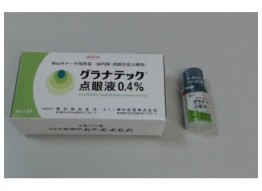Opdivo (Nivolumab) 100 mg / 10 ml X 1 vial. Nobel winning medicine for cancer.
What are Opdivo intravenous infusions 100 mg for cancer (nivolumab)?
An active principle of Opdivo intravenous infusion is nivolumab, a fully human monoclonal immunoglobulin G4 antibody to PD-1. It works by inhibiting the binding of cancer cell to T-cell (immune cell) via PD-1 receptor and promoting T-cell activation. Consequently, Opdivo intravenous infusion enhances immune response to cancer and shows antitumor effect.
This medicine is based upon a Nobel Prize winning study (the 2018 Nobel Prize in Physiology or Medicine awarded to Tasuku Honjo and James Allison for their discoveries in cancer immunology). It is effective for the treatment of various cancers, including malignant melanoma, unresectable advanced/recurrent non-small cell lung cancer, neoadjuvant treatment of non-small cell lung cancer, radically unresectable or metastatic renal cell carcinoma, recurrent or refractory classical Hodgkin's lymphoma, recurrent or distant metastatic head and neck cancer, unresectable advanced/recurrent gastric cancer, unresectable advanced/recurrent malignant pleural mesothelioma, microsatellite instability high (MSI-High) unresectable advanced/recurrent colorectal cancer progressing after cancer chemotherapy, radically unresectable advanced/recurrent esophageal cancer, adjuvant treatment of esophageal cancer, cancer of unknown primary and adjuvant treatment of urothelial cancer.
To import this medicine, you will need a prescription or a diagnosis paper. If you can provide documentation that you require the medicine, your local requirements will allow you to import it in any country (including India).
Active principles: nivolumab
Amount: 1 vial * 10 ml
Maker: Ono Pharmaceutical Co., Ltd., Osaka, Japan
Indications:
- malignant melanoma,
- unresectable advanced/recurrent non-small cell lung cancer,
- neoadjuvant treatment of non-small cell lung cancer,
- radically unresectable or metastatic renal cell carcinoma,
- recurrent or refractory classical Hodgkin's lymphoma,
- recurrent or distant metastatic head and neck cancer,
- unresectable advanced/recurrent gastric cancer,
- unresectable advanced/recurrent malignant pleural mesothelioma,
- microsatellite instability high (MSI-High) unresectable advanced/recurrent colorectal cancer progressing after cancer chemotherapy,
- radically unresectable advanced/recurrent esophageal cancer,
- adjuvant treatment of esophageal cancer,
- cancer of unknown primary,
- adjuvant treatment of urothelial cancer.
How to use
This medicine is administered by intravenous infusion for at least 30 minutes at a time. The exact dosage and regimen of treatment are to be prescribed by doctor in charge. Below are the general recommendations.
- Head and neck cancer, adjuvant treatment of esophageal cancer, cancer of unknown primary, adjuvant treatment of urothelial cancer: adults should receive intravenous infusion once every 2 weeks or once every 4 weeks. However, in the case of the adjuvant therapy in the esophageal cancer and the adjuvant treatment of urothelial cancer, the treatment duration is up to 12 months.
- Malignant melanoma, colorectal cancer: adults should receive intravenous infusion once every 2 weeks or once every 4 weeks. However, in the case of the adjuvant therapy in the malignant melanoma, the treatment duration is up to 12 months. In general, for adults, administer by intravenous infusion in combination with ipilimumab 4 times every 3 weeks, then followed by intravenous infusion once every 2 weeks or once every 4 weeks.
- Non-small cell lung cancer, gastric cancer: adults should receive by intravenous infusion once every 2 weeks or once every 4 weeks. In general, adults should receive intravenous infusion in combination with other anticancer agents once every 2 weeks or once every 3 weeks.
- Neoadjuvant treatment of non-small cell lung cancer: adults should receive intravenous infusion in combination with other anticancer agents once every 3 weeks. However, the cycles are up to 3 times.
- Malignant pleural mesothelioma: adults should receive intravenous infusion once every 2 weeks or once every 4 weeks. In general, adults should receive intravenous infusion in combination with ipilimumab once every 2 weeks or once every 3 weeks.
- Renal cell carcinoma: adults should receive intravenous infusion once every 2 weeks or once every 4 weeks. In general, adults should receive intravenous infusion in combination with cabozantinib once every 2 weeks or once every 4 weeks. In general, adults should receive intravenous infusion in combination with ipilimumab 4 times every 3 weeks, then followed by intravenous infusion once every 2 weeks or once every 4 weeks.
- Classical Hodgkin's lymphoma: adults should receive intravenous infusion once every 2 weeks or once every 4 weeks. Children should receive intravenous infusion once every 2 weeks. For children weighing 40 kg or more, administer by intravenous infusion once every 2 weeks or once every 4 weeks.
- Esophageal cancer: adults should receive intravenous infusion once every 2 weeks or once every 4 weeks. In general, adults should receive intravenous infusion in combination with other anticancer agents once every 2 weeks, once every 3 weeks or once every 4 weeks.
Contraindications: do not use for pregnant or breastfeeding women. Do not use for patients with autoimmune disorder or its history, interstitial pulmonary disease or its history, or a history of organ transplantation (including hematopoietic stem cell transplantation).
Important information
If an allergic reaction occurs, patient needs to stop using the medicine and consult with their doctor. If patient is taking any other medication or treatment, they should consult with their doctor in advance.



